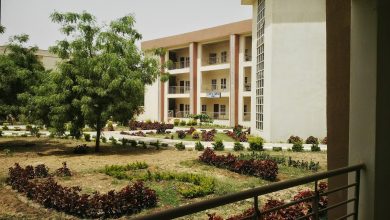List of special courts in Nigeria
In this article we shall be looking at the list of special courts in Nigeria.

Table of Contents
Types of Courts in Nigeria
Basically we have seven (7) courts of Records in Nigeria. As it was enshirine under section 6 of the 1999 constitution of Federal Republic of Nigeria.
Superior courts in Nigeria
The following are List of Superior courts in Nigeria. These are:
1. SUPREME COURT
2. COURT OF APPEAL
3. FEDERAL HIGH COURT
4. STATE HIGH COURT
5. NATIONAL INDUSTRIAL COURT
6. THE SHARIA COURT OF APPEAL
7. THE CUSTOMARY COURT OF APPEAL
Lower Courts in Nigeria
The following are the list of lower courts in Nigeria. These are:
1- MAGISTRATE COURT & DISTRICT COURT
2- CISTOMERY COURTS
3- AREA COURTS
4- TRIBUNALS, SUCH AS RENT TRIBUNAL, ROBBERY TRIBUNAL AND FIREARMS TRIBUNAL, VARIOUS MOBILE COURTS.
5- CORONER’S COURTS
6- FAMILY COURT OR JUVENILE COURTS; AND SO FORTH.
You may Ask;
Which court is highest/hierarchy court
in Nigeria?
As it was provided under Section 230 of the 1999 Constitution of the Federal Republic of Nigeria (as amended 2011).
Supreem court of Nigeria
Supreme Court is the apex court of Nigeria, which implies that the jurisdiction of the court is the highest in Nigeria. The decision of the court is final and cannot be appealed.
You may Also Ask;
Which court is the lowest court in
Nigeria?
Magistrate court or District court is the lowest court in Nigeria.
This court is not prescribed under the 1999 Constitution of the Federal Republic of Nigeria (as amended 2011).
Magistrate Courts and District Courts
Magistrate Courts are established by the law of the House of Assembly of a State. As for the Magistrate Court, it is a court of summary judgment as grounds are defined in this court without briefs or pleadings filed by the parties.
History of courts in Nigeria
SUPREME COURT
Supreem court is the apex court of Nigeria, which implies that the jurisdiction of the court is the highest in Nigeria.
The decision of the court is final and cannot be appealed. If you are not certisfied with decision of supreme court, you have to wait for court of God in thereafter. As this was stated In the case of Adegoke Motors V. Adesanya (1983) 3 NWLR (Pt 109) stated thus: “Here in supreme court, we are not final because we are infallible, we are only infallible because we are final. Any judgement given by us here, has no appeal. If it will be appealed it will be in the court of heaven where Almighty God presides. And certainly to see God in that Court, one must drop your present skin and form”
The Supreme Court is composed of the Chief Justice of Nigeria. The number of justices of the supreme court does not exceed 21, and the President appoint them on the recommendation of the National Judicial Council (NJC), subject to confirmation by the Senate.
Judges of the Supreme Court must be qualified to practice in Nigeria and have at least 15 years of qualifications.
The judge of the Supreme Court of Nigeria must be retired at the age of 70 years.
jurisdiction of the Supreme Court of Nigeria
By the provisions of Section 233(1) of the 1999 constitution of the Federal Republic of Nigeria (as amended), the Supreme Court shall have jurisdiction, to the exclusion of any other court of law in Nigeria, to hear and determines appeals from the Court of Appeal ”.
Its jurisdiction is the highest and most important in the country. This consequently means that no appeal can be
heard regarding matters decided by the supreme court before any other Nigerian court.
In general, these matters include any controversy between the Federation and the State or between States. As far as that controversy involves any matter (whether of fact or law) on which an existence of a legal right is called into question.
Basically, the Supreme Court does not have the original jurisdiction on just any criminal matter. In addition, it has the jurisdiction to the exclusion of any other court in Nigeria to determine and hear any proclamation from the court of Appeal.
You may ask;
How many supreme court do we have
in Nigeria?
There is only one Supreme Court in Nigeria which is located in Federal Capital Territory, Abuja, Nigeria.
Establishment of Supreme Court
Supreme court was established in 1963 subsequent to the enunciation of the Federal Republic of Nigeria and the 1960 Constitution, which became effective on October 1, 1963. It also succeeded the cancellation of Section 120, which repealed the appellate jurisdiction of the Privy Council judicial committee, which was the Nigeria’s Apex Court.
Court of Appeal of Nigeria
The next one on the hierarchy of Nigerian courts is the Court of Appeal. Compared to the Supreme Court, which is located only in Abuja, the Court of Appeal is separated into various judicial divisions and sits in definite States in Nigeria. It was established by Section 237 of the 1999 Constitution.
The Court of Appeal always consists of the President of the Court of Appeal and 49 judges, appointed by the President on the recommendation of the National Judicial Council (NJC), subject to confirmation by the Senate. and it comprises of 49 (forty-nine) judges at all times.
Jurisdiction of Court of Appeal
The Court of Appeal has the original jurisdiction to the exception of all other courts in Nigeria to determine and hear any question as to whether any person has been validly voted to the office of the Governor or Deputy Governor, the President or Vice-President in Nigeria. It appeals from the High Court of a State, the Federal High Court, the Customary Court of Appeal of a State, Sharia Court of Appeal of the Federal Capital Territory, the High Court of the Federal Capital Territory, the Court Martial, Sharia Court of Appeal of a State, and any other Tribunal.
Like the completeness of Supreme Court decisions, the Court of Appeal also possesses the completeness of decisions on appeals coming from the resolutions of the State and National Houses of Assembly election petitionsband also, on the appeal coming from any civil jurisdiction of the National Industrial Court.
Federal High Court of Nigeria
Just like the Court of Appeal, the Federal High Court is divided into various judicial divisions for administrative convenience and has a division in each of the thirty-six states in Nigeria.
Section 249 of the 1999 Constitution provides for the existence of the Federal High Court.
The Federal High Court is headed by the Chief Judge and contains the number of Judges allowed may be preassigned by an Act of the National Assembly. But we should point out, that it can be properly constituted if it contains at least one Judge of the Court.
Jurisdiction of Federal High court
This Court has original jurisdiction in civil cases, and matters as set out under Section 251 (1) of the 1999 Constitution.
It should be mentioned that the Federal High Court also has the appellate jurisdiction and all the powers of the High Courts of a State. This court divides the concurrent jurisdiction of the State High Court in matters regarding the interpretation or application of the constitution, banker-customer relationship, and fundamental human rights enforcement cases.
High Court of the Federal Capital Territory (FCT) / State High Court
The Section 255 of the 1999 Constitution provides for the ascertainment of a High Court of the Federal Capital Territory, Abuja. While Section 270 provides for the ascertainment of a High Court for each State of the Federation.
So, the State High Court and the High Court of the Federal Capital Territory particularly are headed by the Chief Judge. The number of Judges they contain is prescribed by the State House of Assembly (in respect of the High Court of a State) or an Act of National Assembly (in respect of the High Court of the Federal Capital Territory, Abuja).
The High Court has the largest jurisdiction under the 1999 Constitution in civil and criminal cases and has the appellant jurisdiction over decisions of Customary Courts, Area Courts, Magistrate Courts, etc.
National Industrial Court
It is provided for under Section 254(a) of the 1999 Constitution of the Federal Republic of Nigeria (as amended).
It is ranked fifth in the Nigerian courts.
Jurisdiction of National Industrial Court
The Court has exclusive jurisdiction over all trade disputes, labour practices, matters related to the Factory Law, Trade Disputes Law, Trade Union Law, Workers ’Compensation Law.
The Court also accept appeals from industrial arbitration panels and all other employment matters in Nigeria.
As a special labour court, all the matters it decides are exclusive to the court, and its judgment so far is subject to appeals only if certain conditions are met. At present, it is possible to appeal to the Court of Appeal with permission.
It is composed of the President of the National Industrial Court and is divided into multiple judicial departments for administrative convenience.
Sharia Court of Appeal
The Section 260 of the 1999 Constitution provides for an obligatory establishment of the Sharia Court of Appeal of the Federal Capital Territory, Abuja.
While Section 275 provides for a dispensable establishment of a Sharia Court of Appeal for any State who wishes to have it.
The court is headed by a Grand Kadi and contain a number of Kadis that is prescribed by an Act of the National Assembly for Sharia Court of Appeal of the Federal Capital Territory, Abuja and the House of Assembly of a State for a State Sharia Court of Appeal.
Jurisdiction of Sharia court of Appeal
Both courts exercise the supervisory and appellate jurisdiction in civil cases involving issues of the Islam personal law.
Customary Court of Appeal
The Customary Court of Appeal of the Federal Capital Territory was established by the Section 265 of the 1999 Constitution and caters to the FCT. While Section 280 provides for the dispensable establishment of the Customary Court of Appeal for any State that wishes to have one.
In general, both courts are led by the President of the Customary Court of Appeal and contain Judges as prescribed by the National Assembly for the Federal Capital Territory, Abuja and the House of Assembly for any State that claims it. In addition, both courts exercise the supervisory and appellate jurisdiction in civil cases involving issues of the customary law.
Magistrate Courts/District Courts
It is one of the court not prescribed for under the 1999 Constitution of the Federal Republic of Nigeria (as amended 2011).
Magistrate Courts and District Courts are established by the law of the House of Assembly of a State. As for the Magistrate Court, it is a court of summary judgment as grounds are defined in this court without briefs or pleadings filed by the parties.
In the Southern part of Nigeria, they are referred to as Magistrate Courts, but in the Northern part of Nigeria, they are referred to as District Courts when they sit in their civil jurisdiction.
Jurisdiction of magistrate court
The jurisdiction of a Magistrate Courts is provided for under the different rules of each State establishing them.
So, as you can see, there are different courts in Nigeria.
Each of them is established by the 1999 Constitution (as Amended 2011), and are authorized by the law to exercise jurisdiction at first instance.
All the courts are differentiated by its position in the hierarchical pyramid of courts. Now you know the differences between all of them. Thank you for Reading.
Reference:
1- Constitution of the federal Republic of Nigeria as amended 2011.
2- Article tittled “list of courts in Nigeria by Omolade Animashaun, Associate at Resolution Law Firm.







